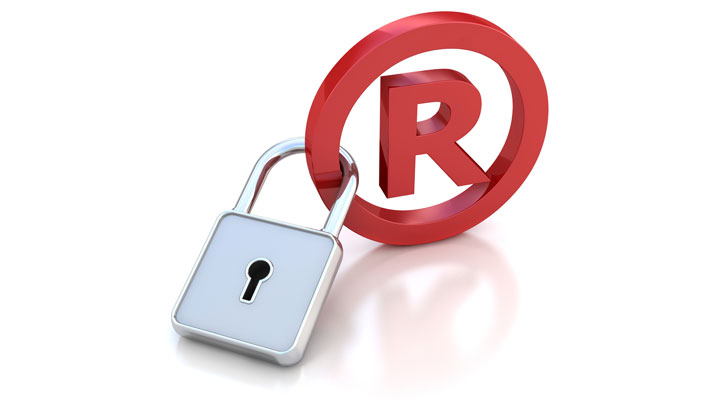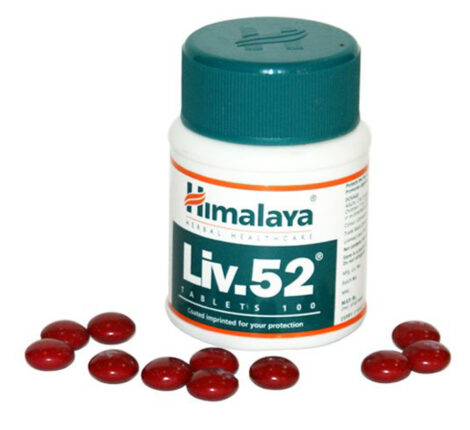Can names be trademarked?
Introduction
“Intellectual property rights are the rights given to persons over the creations of their minds. They usually give the creator an exclusive right over the use of their creation for a certain period.”[1] There are two types of Intellectual property: “Industrial property, which includes patents, trademarks, industrial designs, and geographic indications of source, and Copyright.”
The scope and definition of intellectual property are constantly evolving with the inclusion of newer forms under the gambit of intellectual property.
Meaning of Trademark
Trademark is a hallmark which is popularly known as brands name in ordinary and day to day language. Trademark is a symbol generally consisting of a label, picture, phrase, words, or word that distinguishes a specific good/service from other goods/services of similar characteristics.
“Trademark” means “a mark capable of being represented graphically and which is capable of distinguishing the goods or services of one person from those of others and may include the shape of goods, their packaging, and combination of colors; and
– in relation to Chapter XII (other than section 107), a registered trademark or mark used concerning goods or services to indicate or to indicate a connection in the course of trade between the goods or services, as the case may be, and some person having the right as proprietor to use the mark; and
– in relation to other provisions of this Act, a mark used or proposed to be used concerning goods or services to indicate a connection in the course of trade between the goods or services, as the case may be, and some person having the right, either as proprietor or by way of permitted user, to use the mark whether with or without any indication of the identity of that person and includes a certificate trade mark or collective mark.”[2]
“Mark includes a device, brand, heading, label, ticket, name, signature, word, letter, numeral, shape of goods, packaging or combination of colors or any combination thereof.”[3]
Characteristics of a good trademark
The essential characteristics of a good trademark are as follows: –
– The trademark should be distinctive, unique, short, and appealing.
– The trademark should fulfill the registration requirements and must not belong to prohibited marks for registration.
– The trademark must not be ambiguous and misleading regarding the features and qualities of goods or services; if the trademark is a word or a name, it should be easy to pronounce, remember, spell and read. If it is in another language, a trademark should be easy to be translated by the common public.
– The trademark must not contain any word, image, or other disrespectful, derogatory, and abusive to any gender, age, caste, or religion.
– The trademark must be invented because the most relevant, suitable, and valuable brands are invented words.
Types of Trademarks
The Trademarks Act, 1999, provides for the registration of several kinds of trademarks. The relevant examples include logo, certification marks, marks relating to service, wordmarks, collective marks, series marks, symbols.
Legal safeguard and protection are awarded to trademarks being unique and distinctive. The distinctive character of trademarks denotes how customers without difficulty recognize a brand to the related products. These unique trademarks are regarded as potent and robust. Such trademarks become vigorous due to inherent uniqueness.
Kinds of Trademarks and Examples
| S.no | Type of Trademarks | Relevant examples | Any Associated Authority |
| 1 | Word-mark | Google,Tata,KFC,IBM,NDTV | – |
| 2 | Device Mark | AMAZONNETFLIXPUMAFLIPKART | – |
| 3 | Service Mark | McDonald’sWalmart | – |
| 4 | Shape Trademarks | PepsiCoke | – |
| 5 | Collective Marks | i. CA | i. Institute of Chartered Accountant |
| 6 | Certification Trademarks | i. WOOLMARK | i. Australian Wool Innovation Ltd. (ii) The Bureau of Indian Standards (BIS) |
Whether personal names be trademarked
It is not mandatory to prove distinctiveness if a personal name where first names are used in combination and concurrence with the last names for a trademark because unique names are viewed prima facie as being distinctive by the Trademark law. However, one should remember that bearing a name capable of being trademarked is not enough. One must also use their name in commerce concerning specific products and services.
Beyoncé, Michael Jordan, Arnold Schwarzenegger, Rush Limbaugh, Frank Sinatra, and David Beckham are some celebrities who have effectively registered their names as trademarks intended for various goods and services. Though, there are a lot of difficulties to protect one’s name as a trademark efficiently.
Deepika Padukone, Shahrukh Khan, Kareena Kapoor are among some Indian celebrities who have got their names trademarked.
Mc Donalds’ is a trademark of an American fast-food Company which Richard and Maurice Mc Donalds own.’ It sells burgers, fries, and other fast-food products. It is a standard character text trademark.[4]
According to the United States Patent and Trademark Office (USPTO), fanciful and arbitrary names are the best to be trademarked.
Fanciful marks comprise names that are not logically connected with a product or a service. Examples of fanciful trademarks include “John Smith,” which belongs to the business, and EXXON.
Arbitrary marks are not made up, but they are logically connected with the goods and services which are sold. For example – APPLE.
Whether Surnames be trademarked
The Indian law does not reject the registration of a surname as a trademark under the Trademark Act, 1999. It is a common presumption and understanding that one can register personal names and surnames globally. Although, a surname or name has to attain uniqueness before it becomes trademarked.
A lot of confusion exists in the law regarding the registration of names as a trademark. When common names or surnames are trademarked, confusion arises concerning the origin, source, quality, and identity of products. For instance, surnames like “Sharma” and “Aggarwal” are widespread these days.
Hence, a surname or name must attain distinctiveness so that people can distinguish it from others. Those surnames that attach better meaning besides it being a surname have more chance to get trademarked and registered – The Courts in India have upheld it. Several surnames have become well-known and popular these days, such as Tata, Ambani, Mahindra, etc.
Further, if a surname without registration becomes a well-known trademark over some time, then another person with the same surname is not authorized to use it as a trademark.
Relevant Cases
Prathiba M. Singh vs. Singh And Associates[5]
In the above case, the Hon’ble High Court of Delhi held that India’s surname “Singh” is widespread and ordinary. As a result, this surname is not fit for trademark registration, with only a single person enjoying a monopoly over it.
Dr. Reddy Laboratories vs. Reddy Pharmaceuticals[6]
As the surname “Reddy” is widespread in the South, the Court highlighted that when average consumers think of “Dr. Reddy,” they relate it with pharmaceuticals and drugs. Hence, the surname has become well-known over 19 years of its functioning. As a result of which it attained enormous goodwill and reputation that has not become its identity. Any pharmaceutical company utilizing the same name for selling its drugs in the market would be operating it dishonestly to take advantage of the goodwill of the original company, which would amount to infringement or passing off.
The Intellectual Property Appellate Board (IPAB) ordered the Registrar of Trademarks to confiscate the registered trademark, ‘Reddy’ of the Reddy Pharmaceutical Limited.
Michael Jordan Case
In the dispute concerning the trademark of Jordan Sports Company in Fujian province, the Supreme People’s Court of the People’s Republic of China observed that the trademark of a famous basketball player silhouette did not reflect Jordan’s characteristics. Thus, it was not identifiable and did not violate MICHAEL JORDAN’s right to the portrait. Therefore, they ruled in favor of Jordan Sports Company. It refers that the eight-year-old legal fight has ended with Jordan Sports Company retaining its “Jordan” trademark. It can put down its cases for a second-round IPO preparation.
McDonald’s vs. McCurry trademark infringement case[7]
In the above case, Mc Donalds’ won a five-year legal fight in 2006 against “Mc Curry,” a small Malaysian Chicken curry restaurant. Yet it was ruled by the High Court that the prefix Mc and the use of colors distinctive of Mc Donalds’ may confuse and deceive consumers.
However, after a retrial, the case was won by Mc Curry in April 2009 as the Federal Court upheld that Mc Donalds’ is not entitled to get trademark protection for the word “Mc.”
In April 2009, a three-member Appeal Court panel overturned the High Court’s judgment and ruled in favor of ‘Mc Curry’. The Court of Appeal also declared that Mc Donalds’ is not entitled to claim exclusive right over prefix “Mc.”
Conclusion
From the above discussion, we could conclude that if the ordinary public recognizes a surname or name with some specific product or service, then it could be trademarked. However, such a name or surname must be unique, distinctive, and rare. A person may register such a name when recognized as a trademark, provided such a name or surname must not confuse the public.
References: [1] “What are intellectual property rights?”, available at https:/www.wto.org/english/ tratop_e/trips_ e/intel1_e. htm (accessed on 4, October, 2021). [2] The Trade Mark Act, 1999 (No. of 47); Section 2(1) (zb). [3] Id., Section 2(1)(m). [4] For details, see MCDONALD'S M Trademark - Registration Number 1069892 - Serial Number 73050832 :: Justia Trademarks, available at https://trademarks.justia.com/730/50/mcdonald-s-m-73050832.html (accessed on 5, October, 2021). [5] For details, see delhihighcourt.nic.in/dhcqrydisp_o.asp?pn=201244&yr=2014, available at http://delhihighcourt.nic.in/dhcqrydisp_o.asp?pn=201244&yr=2014 (accessed on 4, October, 2021). [6] For details, see Dr. Reddy'S Laboratories Ltd. v. Reddy Pharmaceuticals Limited | Delhi High Court | Judgment | Law | CaseMine, available at https://www.casemine.com/judgement/in/56090b93e4b0149711175048 (accessed on 5, October, 2021). [7] For details, see McDonald's v McCurry - LoyarBurok | LoyarBurok, available at https://www.loyarburok.com/2010/02/03/a-comment-on-mcdonald-losing-its-trademark-battle-against-mccurry/ (accessed on 5, October, 2021).
Authored by: Nikita Dobhal, LLM, Uttarakhand Technical University, Dehradun
Disclaimer: This article is intended to provide general guidance to the subject matter. For any specific advice/corrections, write to info@zestip.com




